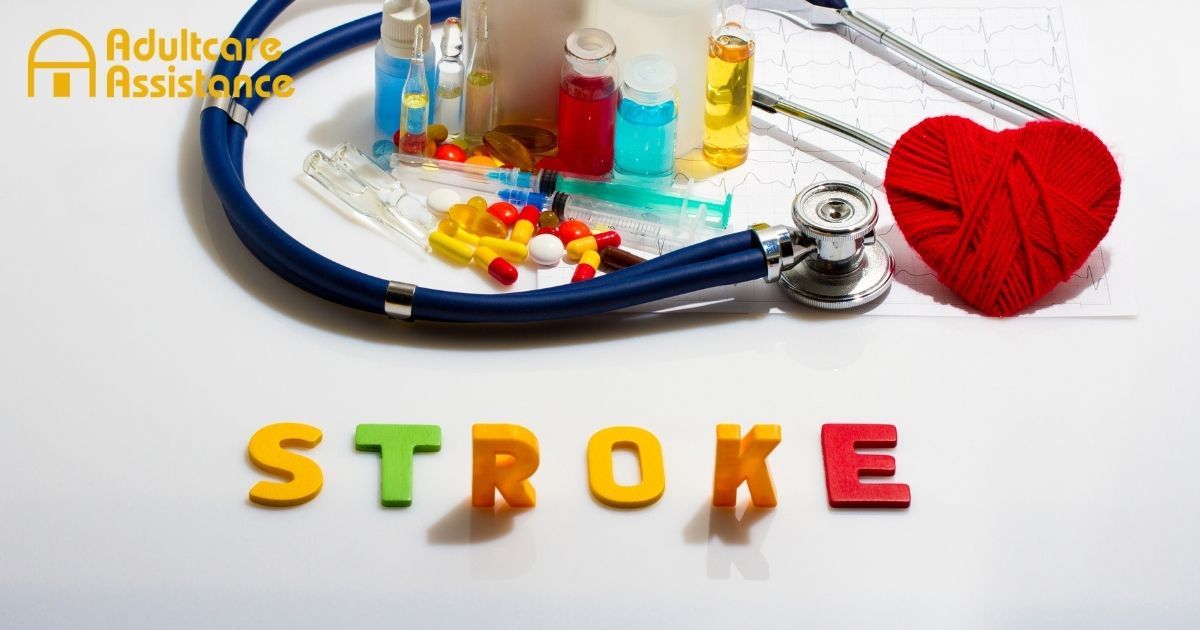Family caregivers have many responsibilities. In addition to their many daily duties they carry out for their loved one, they also assume responsibility for getting emergency medical personnel to their home should the one they’re caring for suffer a medical emergency. As a result, caregivers are always wary of problems like a heart attack or stroke.
As one ages, medical challenges are bound to arise; it’s inevitable. Fortunately, concerning strokes, there are positive steps that can be taken to minimize the risk, and in many cases, prevent a stroke from happening.
Here is a list of five things family caregivers can do to reduce the risk of stroke for your loved one, or prevent it altogether.
1. Control Blood Pressure
High blood pressure (hypertension) is the leading cause of strokes. Even mild hypertension, if not adequately controlled, increases the risk of stroke. For optimal health, a person’s blood pressure should be below 120/80.
High blood pressure is often called “the silent killer”; there are often no apparent symptoms. This makes it necessary to check blood pressure regularly. Besides diet modification (having a low sodium diet), weight control, and stress management, your loved one may need to control their hypertension with medication.
2. Improve Diet
The risk of stroke is increased by having a high-fat diet, having elevated cholesterol levels, and consuming too much salt. Doctors and nutritionists make these three recommendations to improve their diet:
- Avoid excess fat. High intakes of fatty foods, particularly saturated fat, and high cholesterol, are significant contributors to atherosclerosis, which is associated with strokes.
- Avoid excess sodium. An excessive amount of sodium in the diet is linked to high blood pressure. Table salt is the primary sodium source in our diets and is found in most canned and processed foods.
- Limit alcohol intake. Drinking more than two drinks per day increases the risk of stroke. For heavy drinkers, the risk of stroke increases significantly. If your loved one won’t stop drinking, limit their daily alcohol intake.
3. Maintain a Healthy Weight
Being overweight puts excess strain on the heart and blood vessels and is linked with high blood pressure. Obesity also is associated with diabetes and heart disease, which increases the risk of stroke. Maintaining weight at recommended levels for their height and build is a prudent preventive measure to prevent your loved one from suffering a stroke.
4. Exercise Regularly
As we age, the percentage of fat in our bodies tends to increase. This can be kept to a minimum through regular exercise. Lower incidences of atherosclerosis have been linked to exercise.
Consult with a physician if your loved one hasn’t been exercising regularly or if there are medical problems. 20 to 30 minutes of aerobic exercise 3-4 times per week is recommended.
5. Stop Smoking
Studies have confirmed that people who smoke have a much higher risk of suffering a stroke, regardless of other factors such as age, heart disease, or high blood pressure. There is a dramatic decline in the risk of stroke within a few years of quitting smoking.
Caregivers Can Help Prevent a Stroke
Many strokes have been prevented by following these five recommendations. It may not be easy to get your loved one to adhere to all of these, but it’s important that they know the risks and what they can do about preventing stroke from happening to them.
What We Can Do
At AAH we’ve been assisting Arizona families for over 20 years now with our award-winning homecare services. As a locally owned agency our reliable caregivers can perform duties like light housekeeping, companion care, respite care, personal care, transportation, medication reminders and even 24-hour live-in care.
From monitoring vitals to helping with activities of daily living our compassionate caregivers create personalized care plans for each individual person they care for. To learn more about AAH now, or to get a FREE home care assessment for a senior in Phoenix, Sun City or Tucson, AZ, today, please visit us at: www.adultcareassistance.com!





